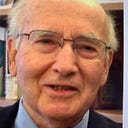
My New Friend, Leo Tolstoy
Philip Kotler
In these troubling times, many people are asking how to lead a good life. Is it enough to get a career, marry, have two children, earn a good income and be generous to others? Should the person take some responsibility for the problems in the world and contribute toward making a better world?
I keep hoping to find a role model who has dealt with difficult times and who undertook actions to make the world a better place.
This led me to spend time thinking about Leo Tolstoy (1828–1910). He led a most interesting life. Born into an aristocratic and wealthy family, he joins the military, fights as a brave soldier, writes one of the world’s great novels, War and Peace, and ends up going through a profound change in his beliefs and behavior.
Tolstoy experienced a profound moral crisis in the 1870s, followed by a profound spiritual awakening. Instead of accepting the world as it was, he saw the need for a new humanistic consciousness. He saw that his family was blessed with a lot of wealth and property while so many other people were going hungry. He came to the view that the right thing to do is to help the poor by setting up schools and giving away his property.
Tolstoy described himself as a Christian but he did not belong to an institutional Church such as the Russian Orthodox Church. For his criticism he was excommunicated in 1901. By declaring himself as a Christian, Tolstoy meant that he believed in the 10 Commandments. He believed in the teachings of Jesus, but he did not comment on Jesus’ miracles or divinity. Tolstoy believed in leading a simple ascetic life. He preferred to be vegetarian, non-smoking, a teetotaler and chaste. Having lived through the horrors of war, he became a Christian pacifist believing in nonresistance. He believed in love your enemy, don’t be angry, don’t lust.
Tolstoy also was critical of the State, including the police, law courts and army. He felt that agents of the state were capable of immoral, violent, and corrupt practices. He was appalled by slavery and the condition of the serfs. He would look favorably upon persons who criticized or fought against coercive state policies.
Tolstoy set up as many as 13 schools to educate the children of serfs. He began to give away portions of his property. This made his wife Sophia angry because she felt that their wealth belonged to their children. She had fears of bankruptcy. Tolstoy finally decided to leave his wife and he trained to another destination, only to get sick, He shortly died afterwards.
Tolstoy’s life is one of reflection and transformation. His reading of the Sermon on the Mount triggered his interest in helping the helpless. Jesus provided a model of the simple but serving life. Tolstoy’s transformation was an inspiration to Mahatma Gandhi and Martin Luther King, Jr. and their philosophy of nonresistance. Tolstoy remains an inspiration to those who want to reform Christianity to return it to its original values. He is an inspiration to those who criticize and oppose harsh, violent or corrupt behaviors of persons entrusted with government.
